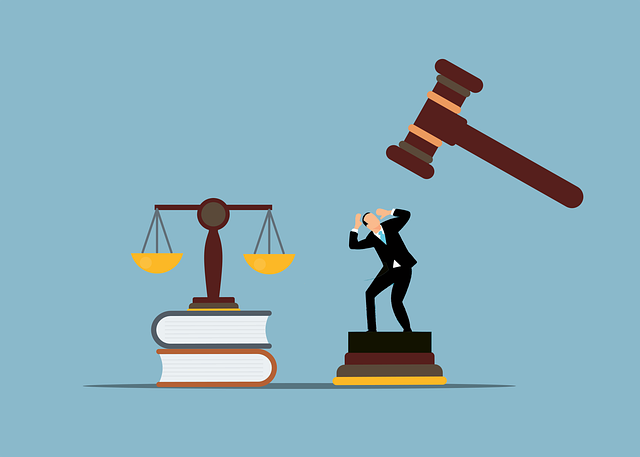Oregon's criminal defense system is guided by a complex interplay of state laws and regulations, balancing individual rights with public safety. Understanding these Oregon criminal defense laws, including basics like the right to remain silent and presumption of innocence, empowers individuals facing charges to navigate the legal framework effectively. Key governing bodies like the Oregon Legislature and Department of Justice shape this system, while an interconnected network ensures fairness and due process for all accused.
“Unraveling Oregon’s Defense Laws: A Comprehensive Guide for Navigating Criminal Justice. Oregon, with its unique legal framework, presents a detailed system of criminal defense. This guide offers an in-depth look at the key components shaping Oregon’s legal landscape. From understanding the state government and its lawmaking bodies to exploring specific criminal offenses and defense strategies, we demystify Oregon’s complex regulations.
Discover the importance of Oregon legal statutes, learn about criminal defense procedures, and gain insights into the rights of the accused. Whether you’re a lawyer or an individual facing criminal charges, this resource provides essential knowledge for navigating Oregon’s defense laws.”
- Understanding Oregon's Legal Framework
- – Overview of Oregon state government and legal system
- – Key bodies involved in lawmaking and enforcement
- Oregon Criminal Defense Laws: A Comprehensive Look
Understanding Oregon's Legal Framework

Oregon’s legal framework for criminal defense is governed by a complex interplay of state statutes and regulations. The Oregon Criminal Defense Laws are designed to protect individuals from unfair prosecution while ensuring public safety. Understanding these laws is crucial for anyone facing criminal charges in Oregon, as they outline the rights of both defendants and law enforcement.
The Oregon legal statutes provide a comprehensive set of rules covering various aspects of criminal procedure, evidence admissibility, and sentencing guidelines. Criminal defense basics in Oregon involve familiarizing oneself with these statutes to navigate the legal system effectively. Defense regulations further refine the application of these laws, offering specific protections and procedures tailored to different types of crimes and circumstances. By understanding the legal framework within which Oregon’s criminal justice system operates, individuals can better comprehend their rights and potential defenses when faced with legal challenges.
– Overview of Oregon state government and legal system

Oregon, with its robust legal framework, boasts a well-defined system of laws that govern its citizens and visitors alike. At the heart of this system lies a comprehensive set of Oregon criminal defense laws, codified in the state’s legal statutes. These regulations provide a structured approach to criminal justice, ensuring fairness and due process for all individuals accused of crimes within its borders. Understanding Oregon laws is crucial for anyone navigating the state’s criminal defense basics, as it offers a unique perspective on rights and protections.
The legal system in Oregon operates under a democratic framework, with elected officials playing a significant role in lawmaking and administration. The state’s government is structured into three branches: executive, legislative, and judicial. This separation of powers ensures a balanced approach to governance and allows for the fair interpretation and enforcement of Oregon legal statutes. By understanding this legal framework, individuals can better comprehend their rights and obligations within the context of Oregon criminal defense laws.
– Key bodies involved in lawmaking and enforcement

In Oregon, the intricate web of criminal defense laws is overseen by several key bodies that work in tandem to ensure fairness and due process. The Oregon Legislature, comprising elected representatives and senators, is responsible for crafting and passing Oregon legal statutes, including those pertaining to criminal defense. These statutes outline the rights of both defendants and prosecutors, defining the scope of acceptable conduct and consequences.
Complementing the legislative branch are various agencies and departments that interpret and enforce Oregon defense regulations. The Oregon Department of Justice plays a pivotal role in prosecuting crimes, while the state’s courts, led by the Oregon Judicial Department, are tasked with adjudicating cases and interpreting the legal framework. Understanding Oregon laws requires delving into these interconnected components, which collectively shape the criminal justice system and provide the basics of criminal defense in the state.
Oregon Criminal Defense Laws: A Comprehensive Look

Oregon criminal defense laws are a crucial aspect of the state’s legal framework, providing protections for individuals accused of crimes. The legal statutes in Oregon offer a comprehensive set of guidelines that outline the rights and responsibilities of both defendants and law enforcement. Understanding these defense regulations is essential for anyone navigating the Oregon justice system.
The basics of criminal defense in Oregon include the right to remain silent, the presumption of innocence, and the requirement for the prosecution to prove guilt beyond a reasonable doubt. Oregon legal statutes also detail various defenses available to individuals charged with crimes, such as self-defense, lack of intent, and mental health issues. By familiarizing themselves with these laws, defendants can better understand their options and navigate the complexities of the criminal justice process effectively.
